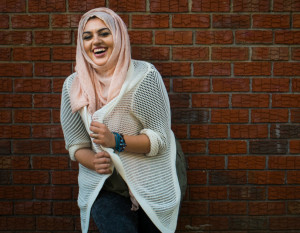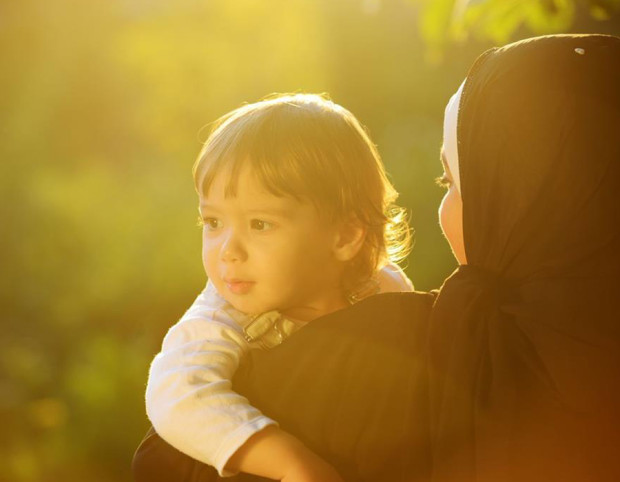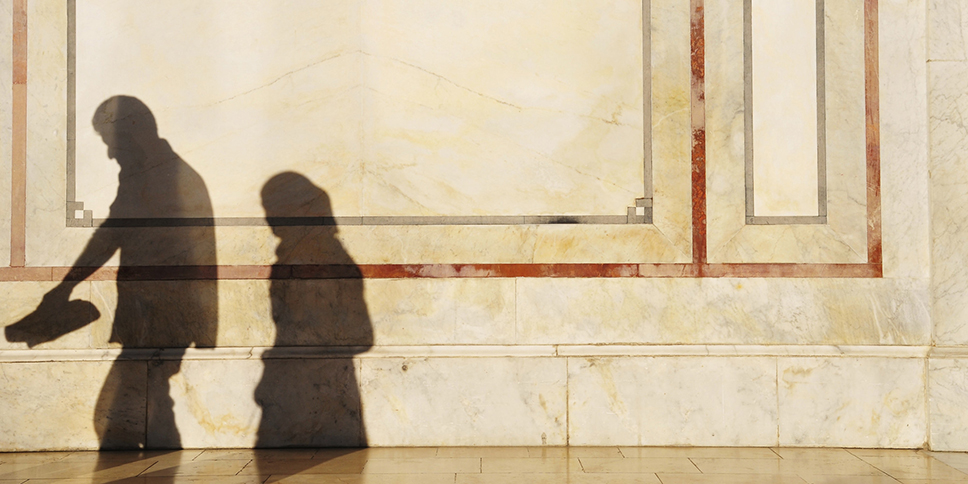Waheeda Saif is a mental health counselor, working as a Trauma Respondent at the Riverside Trauma Center (Massachusetts, USA). Her experience, not only as a psychologist, but also as a Muslim, has made her face the need of talking with teenagers and children about Islamophobia and discrimination. In this article, she offers some useful tips about how to treat this sensitive issue when talking to children:
“How was your day today?” I asked my eight-year-old as we pulled out of his Islamic school.
“It sucked! We didn’t get to go outside today because they’re soooo scared of the bombs in Paris. That’s so stupid! Paris is so far away and it’s not like those guys can beam here.”
My heart stopped. My thoughts became a jumble. In panic, I tried starting a conversation with him, but quickly realized it wasn’t going anywhere. I dropped it, and we moved onto his Social Studies project that was due soon.
And that’s how I, a therapist with over a decade of experience specializing in the field of Crisis Response and Trauma, dealt with the issues that are front and center for many parents today. I’ve had plenty difficult conversations with my children, and I regularly coach other adults on how to best broach difficult topics. But this conversation felt fundamentally different. It was more than just breaking bad news or explaining a horrific period in our history. It felt as if I would be making certain assertions about who he was as a human being, as an American, as a Muslim – his very  identity. And those stakes were too high.
identity. And those stakes were too high.
As parents, we often shy away from having these conversations. We tell ourselves our children are too young, they won’t “find out.” But reality is, children KNOW ― whether it is the news tab left
open on the tablet or through playground gossip. It is always better to have a responsible adult give them accurate information. We play a crucial role in guiding our children’s thoughts and reactions, both by offering our points-of-view and by modeling our reactions to situations. Perhaps the most crucial part is to monitor our own reactions – kids get their cues from us, and will pick up on feelings of extreme fear, anger, and hopelessness. Ultimately, NOT having these conversations sends the message that this topic is too big or scary for us to talk about.
Of course, things have to be explained in age appropriate ways ― start by asking questions about what they already know and what they think happened. Answer their questions honestly and with information you think they can handle. While it is important to emphasize their safety, especially for younger children, it is imperative that we don’t make promises we can’t keep. (“I promise nothing like that will ever happen here.”)
How to handle the conversation
Here are some age-specific tips on having these conversations:
Preschoolers
- Generally, preschoolers do not need to know about current world events, unless it directly affects them (their school/community)
- Monitor media exposure – they see, hear, and understand more than we think
- If you think your child knows or if they ask you questions, answer their questions, emphasizing what adults are doing to ensure their safety
Ages 7 – 12:
- Ask them what they already know and what their understanding is of the situation ― “Have you heard about what happened in Orlando?”
- Ask them about their main concerns
- Correct any misinformation
- Reassure them of their safety without promising things you can’t guarantee
- Make clear that only those people who “do bad things” are to blame, and not everyone from that same group – just like they wouldn’t want to be blamed for something their sibling did
- Discuss the concept of Islamophobia in a larger context: it is a form of discrimination; people often fear things they don’t understand; sometimes an entire group gets blamed for the actions of a few
Ages 12+
- Assume they know about world events, local politics, and current backlash against minority groups
- Ask about what they’re seeing on social media
- Ask how they understand the current political climate, including Islamophobia
- Ask if they’ve had negative or positive experiences specific to being Muslim; share your own positive experiences
- Put the current geopolitical climate within a historical context – explain how various groups of people, throughout history, have used various political, racial and religious ideologies to advance their personal agenda
- Discuss Islamophobia in a broader context – discrimination against certain groups of people is commonplace throughout American history (Native Americans, Jews, Italians, Catholics, slaves, etc.)
- Encourage them to explore how they might answer difficult questions about their faith through role-playing scenarios
- Talk to them about bullying and teach them how to be an ally – role play how they might handle a situation where they themselves, a classmate or friend is being bullied
- Invite them to think of concrete ways in which they can make a positive impact
Other considerations with teenagers:
- Monitor media consumption (keep computers in family spaces, discuss the news)
- Talk to your child about internet safety
- ISIS recruiting tactics are similar to those of gangs:
- preying on youth who feel disconnected
- offering a sense of belonging and greater sense of purpose
- creating an us vs. them mentality
- offering an idealized version of Utopia
- Discuss the difference between ISIS’s version of Islam and yours
- Broaden the conversation – discuss injustices on a human level (talk about the different groups of people that have been persecuted throughout history, including but not limited to Muslims)
Even with these tips and a lot of resolve, it may be difficult to have this conversation with your child. Our children look to us for guidance on how to think and feel about things, so it is important to manage our own reactions during these conversations. It is okay for them to see adults have a range of reactions, as long as they continue to feel safe.
As we navigate through these difficult times, it is important to take care of ourselves and engage in individual and family activities that bring us happiness, joy, peace and comfort.
I did eventually end up having that conversation with my son. And while it was heartbreaking and gut-wrenching, it went better than I had anticipated. He eventually concluded that Donald Trump was “a poop-face,” and I agreed.
Source: The Huffington Post
















No Comments